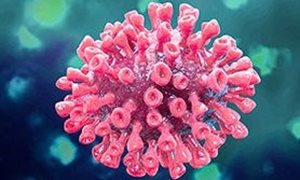 Radboudumc has combined its research into controlled human infection models to create a new program: the Radboudumc Controlled Human Infection Models (RCHIM). By studying the interaction between pathogens and humans under controlled conditions, researchers can improve their understanding of the underlying disease mechanisms. This understanding contributes to a more targeted development of medicines and vaccines and to improved control of infectious diseases. For the time being, the RCHIM is conducting research into malaria, sepsis and respiratory infections.
Radboudumc has combined its research into controlled human infection models to create a new program: the Radboudumc Controlled Human Infection Models (RCHIM). By studying the interaction between pathogens and humans under controlled conditions, researchers can improve their understanding of the underlying disease mechanisms. This understanding contributes to a more targeted development of medicines and vaccines and to improved control of infectious diseases. For the time being, the RCHIM is conducting research into malaria, sepsis and respiratory infections.
Malaria, sepsis and respiratory infections
With this underlying idea, several controlled human infection models have been developed at the Radboudumc in recent years, including models for malaria and sepsis. The Radboudumc Center for Infectious Diseases has now included these models in the new research program, which is called the Radboudumc Controlled Human Infection Models (RCHIM). The initial focus will be on models for malaria, sepsis and respiratory infections in humans. Models for other infectious diseases will be added over time.Safety of participants is paramount
In controlled human infections, selected healthy volunteers receive – after approval by the medical ethics committee – a small dose of a well-characterized microorganism (or a component of the microorganism). Then the volunteers are carefully monitored and treated. Controlled human infection models must comply with strict laws and regulations, with the safety of the participants always being paramount.400 volunteers
Peter Pickkers, Professor of Experimental Intensive Care Medicine, theme Infectious diseases and global health, explains this approach: “These models are an essential part of pharmaceutical research. They are needed for translating experimental results from animal models to a model that is useful for human patients.” Robert Sauerwein, Professor of Medical Parasitology, theme Infectious diseases and global health, adds: “Approximately 400 volunteers have participated in our controlled human malaria studies so far. With this initiative, we are joining forces at Radboudumc to further improve quality and efficiency in this field.”For more information, go to: www.radboudumc.nl/rchim
Related news items

Rebecca Halbach receives idea generator grant to fight mosquito transmitted viruses
8 July 2020Rebecca Halbach and Pascal Miesen have investigated in a collaborative project whether the treatment of mosquitoes with antiviral drugs can prevent the transmission of mosquito-transmitted viral diseases.
go to page
Invasive fungal infections in influenza and COVID-19
8 July 2020 The Aspergillus fungus is found in the lungs of many COVID patients. A parallel occurs with influenza patients, who often develop a serious fungal infection. Although such a serious fungal infection seems to occur less frequently in COVID-patients, alertness remains necessary, go to page.aspx?width=4000&height=2659&ext=.jpg&type=BlockColumn1Zoom1)
Antihypotensive agent disrupts the immune system in sepsis
11 June 2020 Patients who go into shock caused by sepsis are treated with norepinephrine. Researchers from Radboudumc published results in today’s American Journal of Respiratory and Critical Care Medicine revealing that its use is not without drawbacks. go to page
First clinical trial with genetically modified malaria vaccine completed
22 May 2020 In an innovative study, Radboudumc and LUMC jointly tested a candidate vaccine based on a genetically weakened malaria parasite. The results of this clinical trial, published in Science Translational Medicine, show that the vaccine is safe and elicits a defense response against a malaria infection. go to page
New step in the development of a vaccine against malaria
22 May 2020 A new vaccine based on rodent malaria parasites achieved a 95% reduction in infection of the liver in humans. An international consortium publishes the results in Science Translational Medicine. go to page